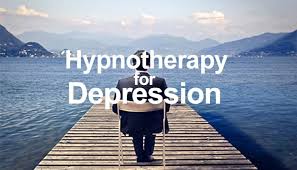Depression can cast a heavy shadow over life, affecting not only mood but also overall well-being. Amidst the array of therapeutic approaches, hypnotherapy stands as a beacon of hope, offering a unique and holistic avenue for individuals seeking relief from the grips of depression.
Hypnotherapy for depression acknowledges that the roots of this mental health condition often extend beyond conscious awareness. By delving into the subconscious mind, hypnosis seeks to address and reframe thought patterns, negative beliefs, and emotional triggers that contribute to depressive states.
The process begins with a skilled hypnotherapist guiding individuals into a state of deep relaxation. This state, often referred to as a trance, allows the conscious mind to take a back seat, opening the gateway to the subconscious. In this receptive state, the hypnotherapist introduces therapeutic suggestions and affirmations aimed at fostering a more positive outlook, promoting self-compassion, and alleviating the weight of depressive thoughts.
Hypnotherapy for Depression is not a one-size-fits-all solution. Each session is tailored to the unique experiences and triggers of the individual. The hypnotherapist collaborates with the client to explore the underlying causes of depression, whether they stem from past traumas, self-esteem issues, or pervasive negative thought patterns.
One of the significant benefits of hypnotherapy for depression is its ability to address the emotional components of the condition. By accessing the subconscious mind, individuals can confront and reprocess emotions that may be contributing to their depressive state. This emotional release can be transformative, fostering a sense of relief and empowerment.
Moreover, hypnotherapy contributes to building coping mechanisms and resilience. Individuals learn to cultivate a positive mindset, develop healthy habits, and respond to life’s challenges with greater adaptability. This comprehensive approach supports individuals in navigating the complexities of depression and facilitates lasting change.
While hypnotherapy for depression is not a substitute for medical intervention, it can be a valuable complementary tool. As part of an integrated approach to mental health, hypnosis offers a unique and personalized avenue for individuals to find light at the end of the tunnel, gradually restoring hope, resilience, and a sense of well-being.



